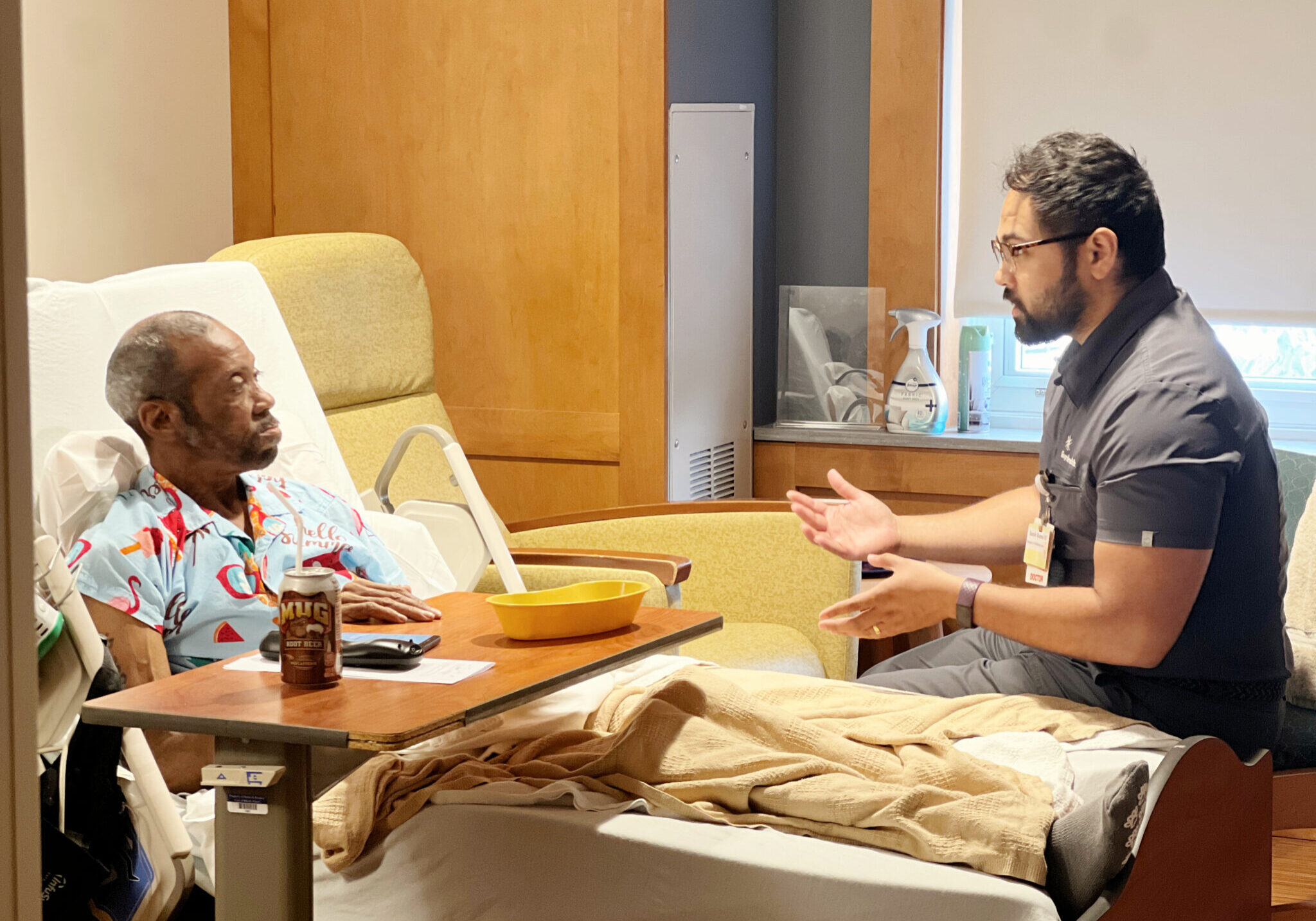Hospice Care in Rhode Island and Massachusetts Rooted in Compassion and Comfort
For nearly 50 years, HopeHealth has provided compassionate hospice care in Rhode Island and Massachusetts, supporting patients and families with dignity, comfort, and peace.
Starting Hospice Care with HopeHealth
When facing a serious illness, navigating hospice care can feel overwhelming. At HopeHealth, we focus on what matters most to you and your family. Our compassionate team is here to guide you every step of the way, ensuring you feel supported and informed.
A Compassionate Approach to Care
We prioritize whole-person care—addressing physical, emotional, and spiritual well-being. Our services are tailored to meet your unique needs and provide dignity, comfort, and peace during life’s final stages.
Where We Provide Care
HopeHealth offers hospice care in Rhode Island and Massachusetts across a variety of settings, including:
- Private homes
- Nursing homes
- Assisted living facilities
- Hospitals
- Inpatient care centers like the HopeHealth Hulitar Hospice Center
Habla espanol? Você fala portugues? Read this for language assistance.
Expert Hospice Care, Backed by Medical Excellence
 HopeHealth's hospice and palliative care professionals are specially trained to support individuals and families facing serious illness, loss, and end-of-life challenges.
HopeHealth's hospice and palliative care professionals are specially trained to support individuals and families facing serious illness, loss, and end-of-life challenges.
As the teaching affiliate for hospice and palliative medicine at The Warren Alpert Medical School of Brown University, we are committed to advancing the field of hospice care through compassionate service and education.
The truth about morphine: A doctor addresses common fears
Does morphine speed up death? Will it make my loved one less alert or “present”? A hospice physician addresses common fears and myths.
Our Hospice Care Services and Support
These are some of the kindest and most caring people you could meet. They provide a much needed service. They treat the person and family with emotional and physical support that gets them through this difficult period. I cannot thank them enough.
— Daniel Rosenthal

